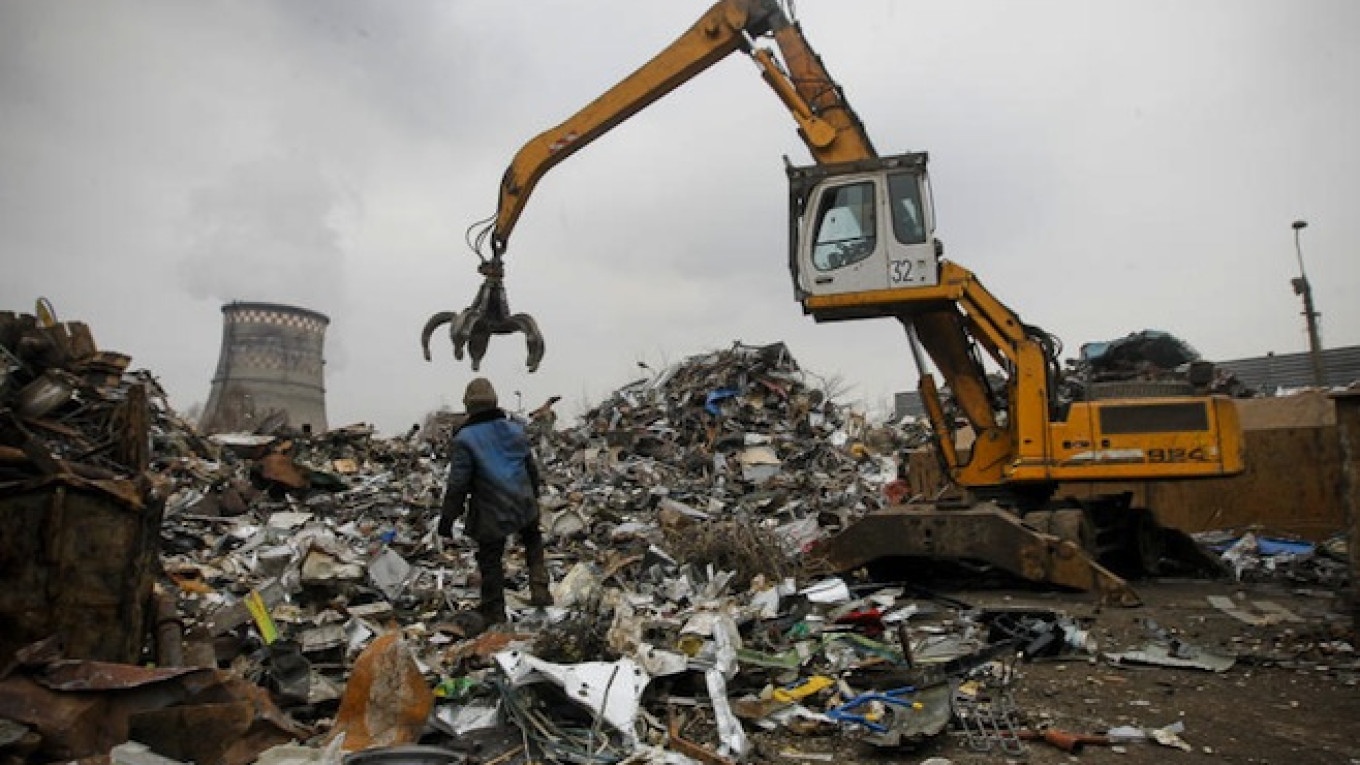This fall, Moscow's department of environmental management and protection is conducting a “Sort and Use” campaign to encourage recycling among residents of the Russian capital.
“Waste sorting and recycling is the only way out since Mayor [Sergei] Sobyanin ordered a halt to construction on new waste burial facilities around Moscow, and the old factories and trash dumps will soon reach their limits,” Anna Khitrova, the department's press secretary, told The Moscow Times.
The “Sort and Use” campaign began on Aug. 29 and will last until Oct. 11. During this period, waste-sorting mobile stations will appear on weekends at 70 spots in Moscow near shopping areas, metro stations, schools and apartment buildings.
Local residents are encouraged to visit the stations with their sorted paper, cardboard, plastic, metal and glass trash as well as dead batteries.
The complete list of dates, locations and accepted items is available on the department's website.
The department hopes that the campaign will help Russians to break their decades-old habit of throwing all trash into one container.
Activists from Greenpeace Russia are skeptical about the campaign, however.
“The 'Sort and Use' campaign has nothing to do with solving the problem. It's a PR stunt to create a green image for the Moscow government,” said Alexander Tsygankov, the coordinator of Greenpeace Russia's toxic waste department.
Greenpeace Russia has long called for waste sorting as a solution to the capital's growing garbage problem. According to analysis done by Greenpeace, Moscow has 15 square kilometers of dumps outside the city.
“Moscow is at risk of being surrounded by a ring of waste disposals,” reads a statement on Greenpeace Russia's website. “Every year Moscow and its suburbs throw away 11 million tons of garbage — 20 percent of all the trash in Russia. Only 4 percent of it is recycled.”
In addition to the space concerns, experts have called Moscow's current methods of burning or burying trash a health hazard since they release toxic elements into the soil, water and air.
According to Tsygankov, waste sorting bins should be placed at every waste disposal station. Such waste separation bins are already required under a law on production and consumer waste passed in Moscow in 2005.
A Work in Progress
Although the waste sorting bins are not at every waste disposal station yet — despite the legislation — 300 disposal centers do exist around Moscow where locals can turn in separated materials for recycling.
The disposal centers are contracted out from the city to commercial recycling groups. One of these is EcoLine, which operates 41 garbage sorting centers in central and northern Moscow.
Maria Chilimskaya, EcoLine's marketing and development department coordinator, told The Moscow Times that it cost more than 3.5 million rubles ($51,700) to establish and operate the sites for nine months.
EcoLine has bins for five different types of waste, but organizing the system of bins has proven costly and inefficient.
According to Chilimskaya, one of the major problems is that people are not prepared to separate waste into five different categories but sorting the waste at an industrial facility is also not efficient because wet waste, such as food, contaminates possible recyclable materials. She said that recycling can only be economically viable for companies in Moscow if recycling bins are installed at every trash collection point.
Experts believe that Muscovites can learn to sort waste, but they need time.
“Let's be honest — there is no waste sorting system in Moscow yet,” said Greenpeace's Tsygankov. “Even the existing garbage recycling plants remain unused or are forced to buy materials abroad, as the city fails to gather enough materials.”
Chilimskaya said it would take time.
“In Germany it took two generations, a huge amount of money and laws such as increased taxes for those who don't sort to acclimate the nation to the habit of waste sorting,” she said.
The current ecological strategy for Moscow as laid out by the city's department of environmental management and protection envisions a 35 percent increase in recycling by 2030.
Contact the author at [email protected]
A Message from The Moscow Times:
Dear readers,
We are facing unprecedented challenges. Russia's Prosecutor General's Office has designated The Moscow Times as an "undesirable" organization, criminalizing our work and putting our staff at risk of prosecution. This follows our earlier unjust labeling as a "foreign agent."
These actions are direct attempts to silence independent journalism in Russia. The authorities claim our work "discredits the decisions of the Russian leadership." We see things differently: we strive to provide accurate, unbiased reporting on Russia.
We, the journalists of The Moscow Times, refuse to be silenced. But to continue our work, we need your help.
Your support, no matter how small, makes a world of difference. If you can, please support us monthly starting from just $2. It's quick to set up, and every contribution makes a significant impact.
By supporting The Moscow Times, you're defending open, independent journalism in the face of repression. Thank you for standing with us.
Remind me later.


